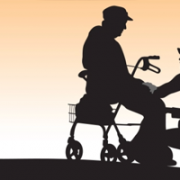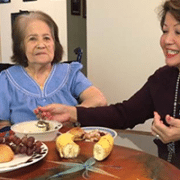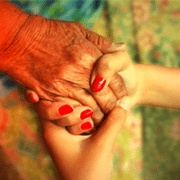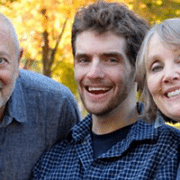Increased Caregiving Needed as Adults Near End of Life, Study Says
/in caregiving, Social Engagement /by adminResearchers at Mount Sinai School of Medicine found that dying adults require twice as many hours of care per week compared to those not near the end of life. A recent study, published in the July edition of Health Affairs, at the Icahn School of Medicine at Mount Sinai showed that end-of-life caregivers were more likely to have physical difficulty related to providing care to end-of-life patients. Approximately 2.5 people on average act as caregivers to older adults nearing the end of life in the United States. Researchers used the National Health and Aging Trends study linked to the National Study of Caregivers to analyze trends in end-of-life caregiving in the United States and found adults nearing the end of life received 61.3 hours of aid per week compared to 35.5 hours per week for older adults not nearing the end of life.
Hawaii Passes Law to Erase Responsibility of Elder Care
/in caregiving, Social Engagement /by adminHawaii last week passed legislation that will provide working family caregivers with financial assistance to help pay for costs associated with caring for their elders. The Kupuna Caregivers Act, signed Thursday by Hawaii Gov. David Ige, is the first of its kind in the nation, Janet Kim, communications director for Caring Across Generations (CAG), a home care policy advocacy group, told NBC News. It provides qualified caregivers with a voucher of up to $70 per day that can be used toward services that they would otherwise perform themselves, including adult day care and assisted transportation.
Alzheimer’s Caregivers: Isolated and Needing Help
/in caregiving, Social Engagement /by adminFifteen million Americans care for a loved one with Alzheimer’s or another dementia, and two-thirds of them feel isolated or alone in that difficult endeavor. That’s one finding of a survey released today by the Alzheimer’s Association, which also revealed that 84% of the caregivers would like more support in their efforts.
“It’s a problem that’s only going to get worse,” said Ruth Drew, director of family and information services for the Alzheimer’s Association, in a statement.
Using Baby Talk With Seniors Is Insulting, Not Cute
/in caregiving, Social Engagement /by adminWhen the nurse calls your elderly parent “sweetie,” she may be doing it to be kind, but using “elderspeak” like this actually can be quite harmful, according to research published in Oxford University’s The Gerontologist. Elderspeak is characterized by a slow speech rate, exaggerated intonation, elevated pitch and volume, the intentional use of simple vocabulary and reduced grammatical complexity, changes in affect, pronoun substitutions (“how are we today?” instead of “how are you?” for example), diminutives, and repetition. And the bottom line is: Elderly people, especially those with cognitive issues, really don’t respond well to it.
The Disabled and the Elderly Are Facing a Big Problem: Not Enough Aides
/in caregiving, Social Engagement /by adminAcute shortages of home health aides and nursing assistants are cropping up across the country, threatening care for people with serious disabilities and vulnerable older adults. In Wisconsin, nursing homes have denied admission to thousands of patients over the past year because they lack essential staff, according to associations of facilities that provide long-term care. In New York, patients in rural areas have been injured, soiled themselves and gone without meals because paid caregivers aren’t available, according to testimony provided to state legislators in February.
Family and Other Unpaid Caregivers and Older Adults With and Without Dementia and Disability
/in caregiving, Social Engagement /by adminIt is estimated that, of the 38.2 million adults aged 65 and older in the United States, 29% receive assistance for health or functioning reasons. Of the 6.6 million older adults who receive assistance in the community, 66% rely exclusively on help from family, friends, or neighbors (family caregivers). These caregivers play a critical role in older adults’ health care, yet their personal well-being may suffer as a result of the demands they face.
8 Signs the Shortage in Paid Caregivers is Getting Worse
/in caregiving, Social Engagement /by adminWhat will happen when we can’t find a paid caregiver to care for an ailing parent, a grandparent too frail to care for herself, or a child with functional limitations who requires 24-hour support? What will we do when home care providers and nursing homes can’t recruit enough workers to fill vacancies or obtain enough state funding to keep their doors open? What will happen when we can’t manage our own care—a chronic condition, a debilitating health scare, a disability, an end-of-life scenario? Who will take care of us during our most difficult hours?These questions haunt us as individuals and as families, especially if we’ve experienced what it means to offer substantive care to someone we love.
New Challenge for Caregivers: The Internet
/in caregiving, Social Engagement /by adminIn the age of online living, caregivers lack support, resources and guidelines to help the vulnerable people who rely on them, according to an initial study, to be presented May 12, at the Association for Computing Machinery Human Computer Interaction (ACM-CHI) conference in San Jose, California. The study is one of the first to examine the role of caregivers in the online lives of adults with cognitive impairments from Alzheimer’s disease and other conditions. In a world where many everyday activities have moved online, caregivers face a new challenge: finding a balance between autonomy and protection of care recipients.
Coping with Caregiving: Take Care of Yourself While Caring for Others
/in caregiving, Social Engagement /by adminIt can be a labor of love, and sometimes a job of necessity. A total of about 43 million U.S. adults provide unpaid care for someone with a serious health condition each year. These often-unsung heroes provide hours of assistance to others. Yet the stress and strain of caregiving can take a toll on their own health. NIH-funded researchers are working to understand the risks these caregivers face. And scientists are seeking better ways to protect caregivers’ health.










